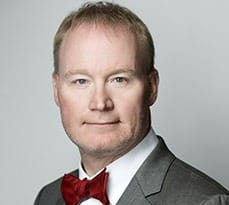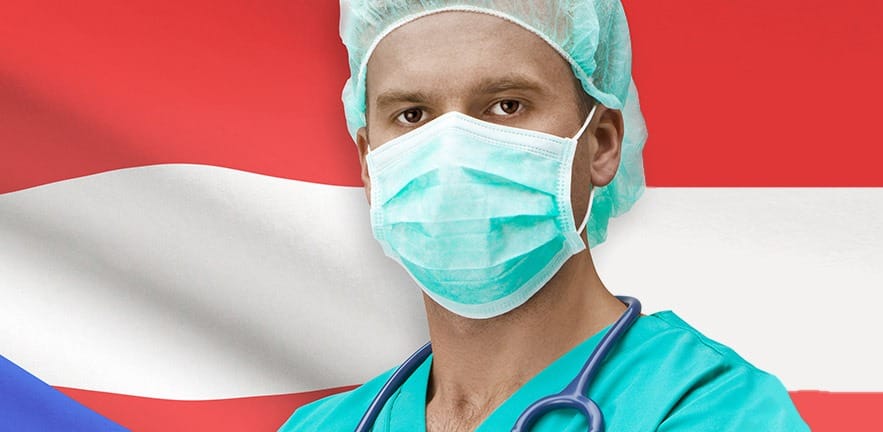Executive MBA participant David Lenihan seeks to transform medical education to address a severe shortage of healthcare workers, using a once-struggling medical school in Puerto Rico as the launchpad.

For David Lenihan, an Executive MBA participant at Cambridge Judge Business School (EMBA 2016), medical care and cultural understanding are closely linked. And that’s why he’s seeking to change the model of medical-school admissions and learning in order to recruit many more people from different ethnic backgrounds.
“If you take a huge stretch of the US from West Virginia to Colorado, 90% of doctors look like me – they’re white – but 30-33% of the people in that area are Hispanic or black,” says David. “And that affects the quality of care, because the understanding of culture is important in terms of communicating and treating patients.
“Take something like hugging: I’m an Irish Catholic from the US Midwest – nobody hugs me unless they’re invited,” he chuckles, “but in many Latin countries hugging is expected. And that influences outcomes.”
So David, who grew up in Illinois and Missouri, has teamed up with an investment firm to buy a medical school in Puerto Rico, Ponce Health Sciences University, to serve as a launchpad for an ambitious project to transform medical education and help meet a growing shortage of doctors in many parts of the US and around the world. Based on current trends, the World Health Organisation says there will be a shortage of 14 million healthcare workers by 2030.
Backed by $40 million in financing from University Ventures, Ponce was purchased in late 2014 by Tiber Health, a company co-founded by David and Daniel Planko, the managing director of University Ventures. The school (which used power generators after the recent severe hurricane in Puerto Rico) quickly increased its medical Board pass rates to 88% from 69%, and turned around the money losing institution, says David, who earned a PhD in Peripheral Neuroscience at Edinburgh University and was previously Dean of the Touro College of Osteopathic Medicine in New York.
The goal of Tiber Health is to create a “school in a box and replicate it”, says David, whose goal within five years is to establish five medical schools in five countries, each with around 1,000 students, along with 50 affiliate schools using the same curriculum, much of it provided through pre-recorded lectures and other digital learning tools downloaded onto mobile devices for students.
“If I can prove this concept, the value to our investors goes up by stopping one of the largest killers in the world – the lack of access to a trained healthcare professional,” he says, though he acknowledges that there are plenty of challenges ahead such as ensuring that new medical schools are a good cultural fit with their communities.
Using techniques developed at Touro, David and his team use statistical models – going beyond grades and other traditional assessments – to analyse whether prospective medical students are likely to pass their Boards following graduation, in order to significantly increase the applicant pool. (“When we go to a doctor, we don’t ask them what grade they got in biochemistry,” he says.) Software is used during classes to determine whether students are understanding the material, so teachers can adapt instruction if needed. In terms of job placement, Tiber Health seeks to identify areas that might benefit from doctors of a certain background.
“For example, there are a lot of Somalis in Minnesota, so I can say to people in Minnesota: ‘I’ve got doctors originally from Somali who are willing to go to Minnesota, so is that of interest to you?’”
Like other EMBA students at Cambridge Judge, David comes to Cambridge for classes once a month over a 20-month period, and says insight from classmates has benefitted his work at Tiber Health.
“One example is how we manage time,” he says. “Some classmates who are bankers were talking about how meetings are handled in the banking industry, and a colleague from southern Europe mentioned that his CEO comes in only after the food, because that’s a better use of his time. I’ve now taken that lesson back to Puerto Rico: we’ll schedule a 7:30 am breakfast meeting, the rest of the team does all the greetings, and I show up at 7:55 am and we get going then and get the exact same amount done.”
David is interested in hearing from…
…people with innovative ideas about medical education.


